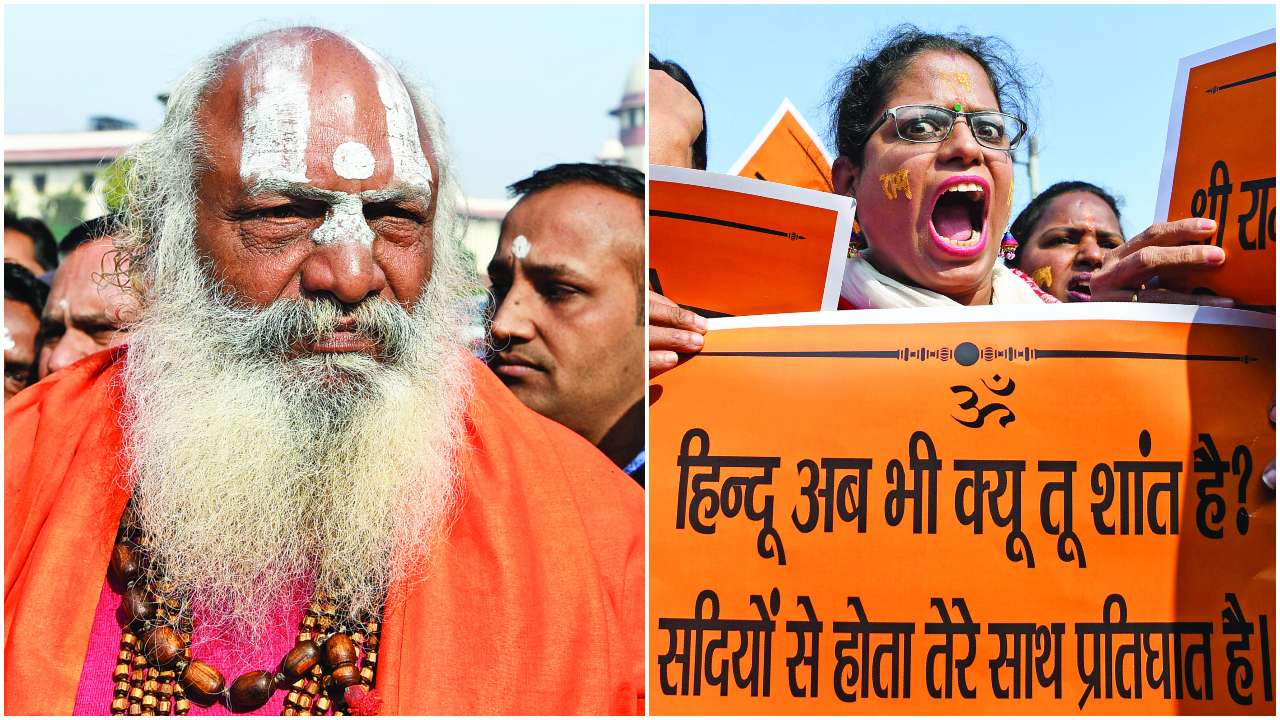
Even as the clamour for an urgent decision on the Ayodhya title suit grows, the history of politically sensitive cases pending in court show how complex legal and political issues involved with such cases demanded time.
In other such sensitive cases, respective governments have requested the court to delay proceedings, and the court has obliged.
The Ayodhya case is not a simple land dispute.
The five-judge bench must address 120 issues of law and facts. Add to this the fact that Chief Justice Ranjan Gogoi, who is heading the Constitution bench, will retire in November.
Meanwhile, pressure has been mounting for the issue to be settled before the 2019 polls. There have been demands for live telecast of court proceedings. Statements have been issued by various political parties and religious bodies, seeking ordinance in case the Supreme Court order does not come before the general elections.
The path of other such politically sensitive cases indicates that this is going to be a long haul.
One such case is the proposal for reservation for Dalit Christians under Scheduled Castes. The Constitution recognizes Dalit Hindus, Sikhs and Buddhists, but not Dalit Christians and Dalit Muslims.
A public interest litigation in this regard was filed by the Centre for Public Interest Litigation (CPIL) in 2004. The Court issued a notice to the Centre, which is yet to file its response. The last order was on February 6, 2015, when a two-judge bench referred the case to the CJI, for constituting a larger bench. Almost four years have lapsed, but no order from the CJI has been forthcoming.
Similar is the fate of a PIL filed challenging a 1982 law passed by the Jammu and Kashmir government. It gave resettlement rights to those who left their property in J&K and settled in Pakistan and Pakistan-occupied Kashmir from May 1947 till early 1948. A PIL was filed by J&K National Panthers Party in 2001, challenging the validity of the J&K Resettlement Act. It is still awaiting consideration of the Court, which will decide whether the matter requires a Constitution Bench.
A third such case is a suit filed by Maharashtra against the Union of India challenging the inclusion of Belgaum, currently a part of Karnataka, under the States Reorganization Act of 1956.
Maharashtra has staked a claim on Belgaum on the basis of the large population of Marathi speakers. It argues that the reorganization of states was done on a linguistic basis, and a majority of Belgaum's population speaks Marathi. The suit was filed in March 2006, and 12 years later, it is still awaiting consideration.
The Ayodhya title suit has been pending since 2011. It took seven years for it to be assigned to a five-judge bench. It is hard to illustrate how many years it will take for the Court to decide whether the 2.77 acres of land, referred to as Ram Janmabhoomi-Babri Masjid site, will go to Hindus or Muslims; or as per Allahabad High Court's decision on September 30, 2010, it will be divided equally between the Muslim faction, Hindu faction and Nirmohi Akhara.
Top court further defers case hearing to january 29